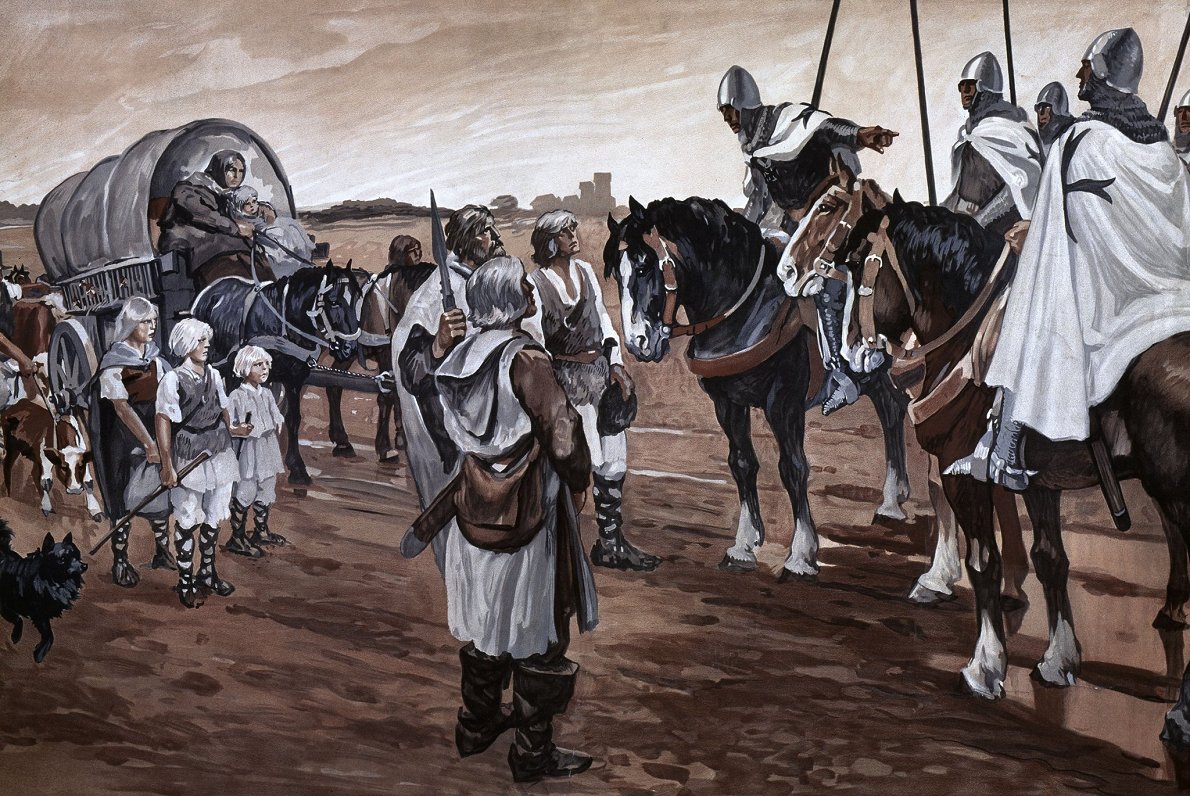The Livonian War began with the invasion of Livonia by Russian Tsar Ivan IV's troops. By destroying the geopolitical status quo in Livonia that existed in the Middle Ages, this war started the period of modern history in the territory of present-day Latvia and Estonia.
"The master, the archbishop of Riga, the bishop of Dorpat (Tartu) and the entire city council promised to pay the fees to the grand duke within three years with an oath and sealed books, but the citizens of Livonia had forgotten all that. They did not want to pay the fees due to the grand duke, although they were reminded of it more than once from the grand duke, like a good doctor who wants to help and give good advice. But the people of Livonia have remained immobile, like Pharaoh, and have not listened to good advice. Therefore, the grand duke has started a war to punish them for these injustices."
Thus writes 16th century Livonian chronicler Baltazar Rusov in an apologia for Ivan's actions – an early example of a Russian propaganda channel, perhaps.
Tsar Ivan IV of Russia, better known as Ivan the Terrible, demanded the tributes that Livonia had promised to pay to his predecessor, Ivan III. The Livonians had not fulfilled the agreement, the overdue amount could not be collected quickly or, as Rusov claims, it could have been possible if the local nobility and townspeople were ready to part with part of their private capital, but this did not happen. So on January 23, 1558, a huge Russian army of 40,000 men, commanded by the tsar's vassal, the Tatar Khan Shah-Ali, (or Shigaley), invaded the Livonin lands.
At first it seemed that Livonia would be annexed to the tsarist state, just as the khanate states of Astrakhan and Kazan on the banks of the Volga had been a few years earlier. Already in the first year of the war, Narva and Dorpat fell, and battles raged in the vicinity of Reval (Tallinn). The military and political capabilities of the Livonian Order had shrunk considerably compared to previous centuries and they found themselves very much on the back foot.
However, Tsar Ivan was far from the only one who wanted a slice of Livonia. In 1559, Gotthard Kettler, the last master of the Livonian Order, signed an agreement with the Grand Duke of Lithuania and King of Poland Sigismund II, recognizing Livonia as a Lithuanian protectorate.
In the same year, Reval recognized the king of Sweden as its lord, while the bishop of Saaremaa sold his lands to Duke Magnus, the brother of the Danish king. A long and bloody war for the inheritance of Livonia began, which far exceeded its borders. The western and south-western regions of Russia, where Lithuanians and Swedes invaded, suffered greatly in the war. The Crimean Khan, whose army occupied and destroyed Moscow in 1571, was not left out either.
Russia, which entered the war with bright prospects and great imperial ambitions, turned out to be the biggest loser in the end. It had to conclude unfavorable peace treaties with the Polish-Lithuanian Commonwealth and Sweden, losing access to the Baltic Sea. The country was devastated and weakened, and in 1585, when Tsar Ivan IV died, the country entered a long period of instability.
In turn, Livonia was divided among the Swedes, Poles-Lithuanians and Danes. Gothard Kettler, the last master of the Livonian Order, became the Duke of Courland and Zemgale under vassalage of the Polish-Lithuanian Commonwealth.
For more about the Livonian War and linked events, visit the Latvian History Museum, Latvian War Museum. the Riga History and Navigation Museum and numerous other museums.



























